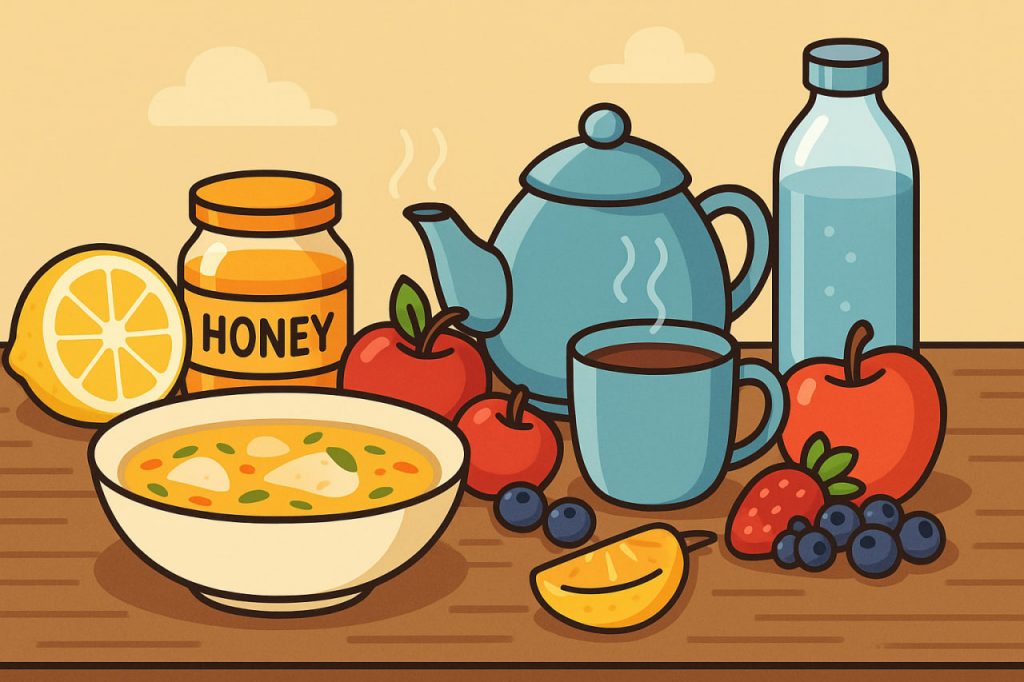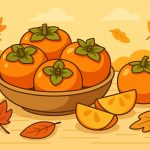When the body is fighting a cold, it needs energy and nutrients to strengthen the immune system. Nutrition during illness should focus on light, easily digestible foods that support hydration, provide vitamins, and reduce the load on digestion.
Importance of Hydration
Drinking enough fluids is one of the most important aspects of recovery. Water, herbal teas, broths, and diluted juices help maintain hydration and thin mucus. Warm drinks also soothe the throat and provide comfort.
Vitamins and Antioxidants
Foods rich in vitamin C (citrus fruits, kiwi, bell peppers) and antioxidants (berries, leafy greens) may reduce the duration of symptoms and support immunity. Including vegetables and fruits daily ensures the body gets essential micronutrients.
Protein for Recovery
Adequate protein intake is necessary for the immune system and tissue repair. Light sources such as poultry, fish, eggs, and legumes are recommended. Chicken broth is a traditional option that combines hydration, protein, and minerals.
Foods to Avoid
During a cold, it is best to avoid heavy, fatty, and fried foods, as they burden digestion and slow recovery. Excess sugar may also suppress immune responses, so sweets should be minimized. Alcohol and strong coffee are not recommended, as they contribute to dehydration.
Gentle Meals for Comfort
Soft and warm foods like soups, porridges, stews, and herbal teas with honey and lemon can ease sore throats and help restore strength. Spicy foods may temporarily clear nasal passages, but they should be consumed carefully if the throat is irritated.
Conclusion
Nutrition during a cold should focus on hydration, vitamins, light protein, and warm, comforting meals. While food does not cure the illness directly, proper nutrition supports the immune system and helps the body recover faster.
Interesting Facts
When you have a cold, your body needs extra energy and nutrients to support the immune system’s fight against infection. Eating warm, easy-to-digest meals such as soups and stews helps maintain hydration and provides electrolytes like sodium and potassium. Research shows that foods rich in vitamin C, zinc, and antioxidants—like citrus fruits, honey, and garlic—can slightly shorten the duration of symptoms. Interestingly, spicy foods containing capsaicin may help relieve nasal congestion by temporarily opening airways. Protein-rich foods such as eggs, chicken, or legumes are also crucial for tissue repair and immune cell production. On the other hand, it’s best to avoid alcohol and excessive sugar, as they can weaken immune response and slow recovery.
Glossary
- Hydration – maintaining adequate fluid balance in the body.
- Antioxidants – substances that protect cells from damage.
- Vitamin C – nutrient that supports immune defenses.
- Protein – nutrient essential for growth, repair, and immune function.
- Immune system – the body’s natural defense against infections.
- Micronutrients – vitamins and minerals required in small amounts.


